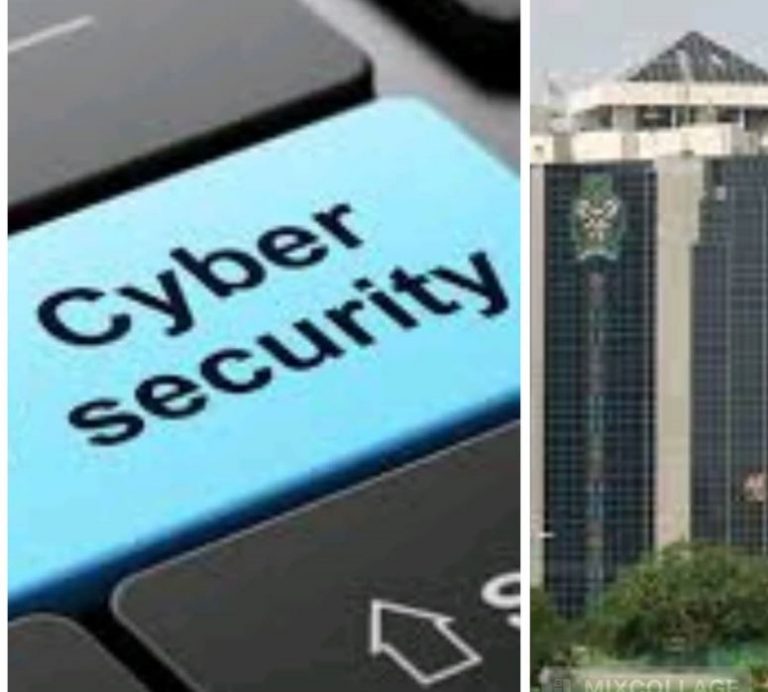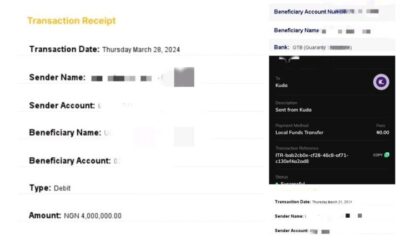Business
Nigeria, Others Need $7.5bn To Deepen LPG Usage – Refiners
Published
12 months agoon
By
Editor
To displace charcoal with clean cooking gas, also known as Liquefied Petroleum Gas, would cost Nigeria and other countries in Africa about $7.5bn for downstream infrastructure and stoves, the African Refiners and Distributors Association has said.
It also stated that the continent remained the lowest in per capita consumption despite its huge abundance of gas, stressing that it was high time stakeholders came up with finance strategies and solutions to address the bottlenecks to clean cooking gas usage on the continent.
The Executive Secretary, ARDA, Anibor Kragha, who disclosed this during an LPG virtual workshop by the group, stated that while sub-Saharan Africa had 14.4 per cent of the world’s population, it had less than one per cent of global LPG consumption.
“Many countries have little or no bulk handling facilities,” Kragha stated.
READ ALSO: Crude Oil Buyers Should Pay Nigeria In Naira, Not Dollar – Falana
He, however, noted that LPG consumption in Africa had more than doubled since 2010, noting that the consumption recorded 9.7 per cent annual growth rate over the past decade.
He said Nigeria remained the largest LPG consumer, adding that LPG was the fastest growing petroleum product in sub-Saharan Africa.
The Vice President, LPG, Europe, Middle East and Africa at Argus, David Appleton, said cooking gas was critical to energy security in Africa.
He noted that safety, pricing, culture and finance were critical to the growth of the sector in Africa, stressing further that infrastructure development remained a key issue.
READ ALSO: Nigeria Lost N2.3tn Revenue To Oil Theft in 12 Months — IOC
Appleton said investors in the sector would definitely expect returns on investments, adding that there must be a way to de-risked investments as much as possible.
He said Africa must think about long term investments and that there was a need for regulatory progress and consistency.
The Senior Associate, Investments, African Finance Corporation, Moussa Dabo, who disclosed at the event that the firm had invested $10.5bn across 36 countries in Africa, said there was need to improve governance and institutions for Africa to attract investments.
Dabo noted that lenders were more comfortable lending to organisations that were willing to establish the best-in-class business practices.
According to him, stability and practicability of cash flow could significantly help reduce cost of financing, while driving more investment into LPG.
READ ALSO: 2023: I’ll Sell All Refineries In Nigeria, Raise 10bn To Empower Youths – Atiku
“Securing favourable, diversified and long term supply contracts with established global traders is necessary and players in the sector should recalibrate their capital structure before seeking financing,” Debo stated, as he explained that equity injection in the business could help lower financing costs.
Also, in a presentation by Wagl Energy Limited, stakeholders at the company noted that the potential for LPG consumption in Africa could improve if the continent was committed to solving challenges in the areas of gas production that prioritised local market, shipping, storage as well as distribution to other end-users.
The company explained that the inadequate number of LPG vessels owned and managed by sub-Saharan African companies was one of the infrastructure issues facing LPG growth in the region.
It decried the limited LPG storage facilities in the region, stressing that several ports and jetties in sub-Saharan Africa, particularly in places such as Nigeria, also had draft restrictions, with their drafts tending to range between 8 – 8.5m.
The gas firm further noted that of the three challenges, the greatest opportunity was in solving the storage bottleneck, as the sub-Saharan region was suffering from a severe lack of LPG storage facilities.
You may like


Army Destroys Illegal Refineries In Rivers, Abia


Army Uncovers 3m Litres Of Stolen Oil In Rivers


NNPCL To Hand Over Port Harcourt Refinery To Private Operators


Military Destroys 68 Illegal Refining Sites In Niger Delta


Five Things To Know About Port Harcourt Refinery


Port Harcourt Refinery Begins Operations – FG
Business
FULL LIST: 16 Banking Transactions Exempted From CBN’s New
Published
12 hours agoon
May 7, 2024By
Editor
The Central Bank of Nigeria on Monday directed all banks to commence charging a 0.5 per cent cybersecurity levy on all electronic transactions within the country.
The apex bank stated this in a circular signed by the Director, Payments System Management Department, Chibuzo Efobi; and the Director, Financial Policy and Regulation Department, Haruna Mustafa; a copy of which was obtained by The PUNCH.
The circular, which was directed to all commercial, merchant, non-interest, and payment service banks, among others; noted that the implementation of the levy would start two weeks from Monday, May 6, 2024.
READ ALSO: Five Things To Know About The New Cybersecurity Levy To Be Paid By Nigerians
“The levy shall be applied at the point of electronic transfer origination, then deducted and remitted by the financial institution. The deducted amount shall be reflected in the customer’s account with the narration, ‘Cybersecurity Levy,’” the circular partly read.
In this piece, The PUNCH highlights all the 16 banking transactions that are exempted from the CBN’s new cybersecurity levy:
Loan disbursements and repayments
Salary payments
Intra-account transfers within the same bank or between different banks for the same customer
Intra-bank transfers between customers of the same bank
Other Financial Institutions instructions to their correspondent banks
Interbank placements,
Banks’ transfers to CBN and vice-versa
Inter-branch transfers within a bank
Cheque clearing and settlements
Letters of Credits
READ ALSO: FG To Delist Naira From P2P Platforms
Banks’ recapitalisation-related funding – only bulk funds movement from collection accounts
Savings and deposits, including transactions involving long-term investments such as Treasury Bills, Bonds, and Commercial Papers.
Government Social Welfare Programmes transactions e.g. Pension payments
Non-profit and charitable transactions, including donations to registered non-profit organisations or charities
Educational institutions’ transactions, including tuition payments and other transactions involving schools, universities, or other educational institutions
Transactions involving bank’s internal accounts such as suspense accounts, clearing accounts, profit and loss accounts, inter-branch accounts, reserve accounts, nostro and vostro accounts, and escrow accounts.
Business
Five Things To Know About The New Cybersecurity Levy To Be Paid By Nigerians
Published
12 hours agoon
May 7, 2024By
Editor
The Central Bank of Nigeria, on Monday, directed banks and other financial institutions to start charging a cybersecurity levy on all banking transactions.
According to the circular sighted by The PUNCH, the implementation of the levy would start in two weeks.
The circular read in part, “Following the enactment of the Cybercrime (Prohibition, Prevention, etc) (amendment) Act 2024 and pursuant to the provision of Section 44 (2)(a) of the Act, ‘a levy of 0.5% (0.005) equivalent to a half percent of all electronic transactions value by the business specified in the Second Schedule of the Act,’ is to be remitted to the National Cybersecurity Fund, which shall be administered by the Office of the National Security Adviser.”
READ ALSO: CBN Orders Banks To Charge 0.5% Cybersecurity Levy
Here are some things to know about the cybersecurity levy to be paid by Nigerians, according to the CBN circular:
1. A new levy of 0.5%, equivalent to half per cent, is applied to electronic transactions as mandated by the Cybercrime (Prohibition, Prevention, etc) (amendment) Act 2024.
2. The levy is paid by the originator of the electronic transaction and deducted by the financial institution. The deducted amount shall be reflected in the customer’s account with the narration: “Cybersecurity Levy.”
READ ALSO: FG To Delist Naira From P2P Platforms
3. Financial institutions will deduct the levy and remit it to the National Cybersecurity Fund administered by the Office of the National Security Adviser.
4. Deductions shall commence within two weeks from the date of the circular, May 6, and financial institutions must remit collected levies in bulk to the NCF account domiciled at the CBN monthly by the fifth business day of the following month.
5. Financial institutions have deadlines to update their systems to handle levy deduction and remittance. Failure to remit the levy can result in penalties, including a fine of up to 2% of a financial institution’s annual turnover.
Business
FG Gives Deadline To PoS Operators To Register With CAC
Published
12 hours agoon
May 7, 2024By
Editor
The Corporate Affairs Commission has set a two-month deadline for Point of Sale operators in the country to register their agents, merchants and individuals, latest by July 7, 2024.
The Registrar-General/Chief Executive Officer, CAC, Hussaini Magaji, SAN, met with some fintech companies, also known as PoS, on Monday in Abuja, during which the agreement was reached.
Magaji said the measure aims at safeguarding the businesses of fintech customers and strengthening the economy, the commission stated via its X handle, tweeting as @cacnigeria1.
Magaji stated that the move complies with “Section 863, Subsection 1 of the Companies and Allied Matters Act, CAMA 2020 as well as the 2013 Central Bank of Nigeria’s guidelines on agent banking.”
READ ALSO: CBN Orders Banks To Charge 0.5% Cybersecurity Levy
The tweet partly read, “Hussaini Magaji, therefore, said that the timeline for the registration, which will expire on July 7, 2024, was not targeted at any groups or individuals but genuinely aimed at protecting businesses.
“Several speakers from the fintech industry pledged to collaborate with the Commission to ensure hitch-free implementation of the directive.
“Some of them, however, stressed the need for adequate and collective sensitisation to ensure that the exercise achieved the desired results.”
In his remarks, Tokoni Peter, the Special Adviser to President Bola Tinubu on ICT Development and Innovation, “pledged to ensure the smooth facilitation of the process in line with the Renewed Hope Initiative of the present administration.”
READ ALSO: CBN Orders Banks To Charge 0.5% Cybersecurity Levy
Present at the meeting were representatives of fintech companies, including Opay, Momba, Palm Pay, Moniepoint, Paystack, among others.
Aside from being an avenue for job creation, PoS operators play a significant role in financial transactions nationwide.
The move to compel the registration of the fintech companies with the CAC has come at a much-needed time as the companies have also been a key part of fraudulent transactions.
READ ALSO: Pandemonium During Church Service As Man Pulls Gun, Attempts To Shoot Pastor [VIDEO]
In its Annual Fraud Landscape (January to December 2023) report, the Nigeria Inter-Bank Settlement System has said that financial institutions lost about N17.67 billion to fraud in 2023.
It was also reported that the Web and PoS channels were the most exploited payment channels by fraudsters in 2023.
The count of Web Fraud decreased by 38 per cent and ATM fraud recorded a 64 per cent reduction from 2022 to 2023.

NLC, TUC Give NERC Deadline To Reverse Hike In Electricity Tariff

SERAP Gives FG 48-hr Ultimatum To Reverse CBN’s 0.5% Cybersecurity Levy

JAMB Releases Results Of 531 Candidates
Trending

 News4 days ago
News4 days ago15-year-Old Public School Student Scores 362 In UTME

 Headline3 days ago
Headline3 days agoPHOTOS: Moment 23-year-old Miss Ecuador Beauty Queen Is Gunned Down In Hail Of Bullets

 Headline4 days ago
Headline4 days agoShock As Woman Who Visited Hospital For Scan Was Told She’s Dead

 News5 days ago
News5 days agoJUST IN: Police Arrest Mastermind Of Abuja-Kaduna Train Attack

 News2 days ago
News2 days agoJUST IN: SERAP Drags 36 Govs, Wike To Court Over N5.9tn, $4.6bn Loans

 Metro1 day ago
Metro1 day agoKidnappers Sleep Off After Abducting Pastor’s Wife, Others In Ondo

 Headline3 days ago
Headline3 days agoVIDEO: Arsenal Pay Tribute To 14-year-old British-Nigerian Fan Daniel Anjorin Killed In UK

 Headline3 days ago
Headline3 days agoFind The Man Who Stole $30000 From Me, Get $2000 Reward – Nigerian Man Cries Out

 Metro4 days ago
Metro4 days agoDelta Lady Dies After Friends Allegedly Pushed Her Into Pot Of Boiling Pepper [Photos]

 News3 days ago
News3 days agoWhy I Refused To Return Govt Vehicles – Ex-Edo Gov, Shaibu






























